TFAS Prague
2025 Program Dates: July 12 – August 2
Come to TFAS Prague to join young leaders from North America, Europe, the Middle East, North Africa, and Central Asia and explore fundamental issues related to political philosophy, political economy, and conflict management. Accredited through Charles University, one of Europe’s oldest and most prestigious universities, the three-week long academic program challenges participants to engage in dialogue with a diverse group of peers, faculty, and guest lecturers in the classroom and as they experience Prague together.
ACADEMICS
The program’s academic goal is to engage students in a thorough and philosophical examination of government, economics, society and culture, and conflict management. The interdisciplinary course is divided into three components and taught by a team of professors from prestigious universities in the United States who will give daily reading assignments which students are expected to complete. Classes are scheduled in the mornings and afternoons, and students will receive 9 ECTS credit hours (equivalent to 4.5 U.S. credit hours) from Charles University upon successful completion of the program.
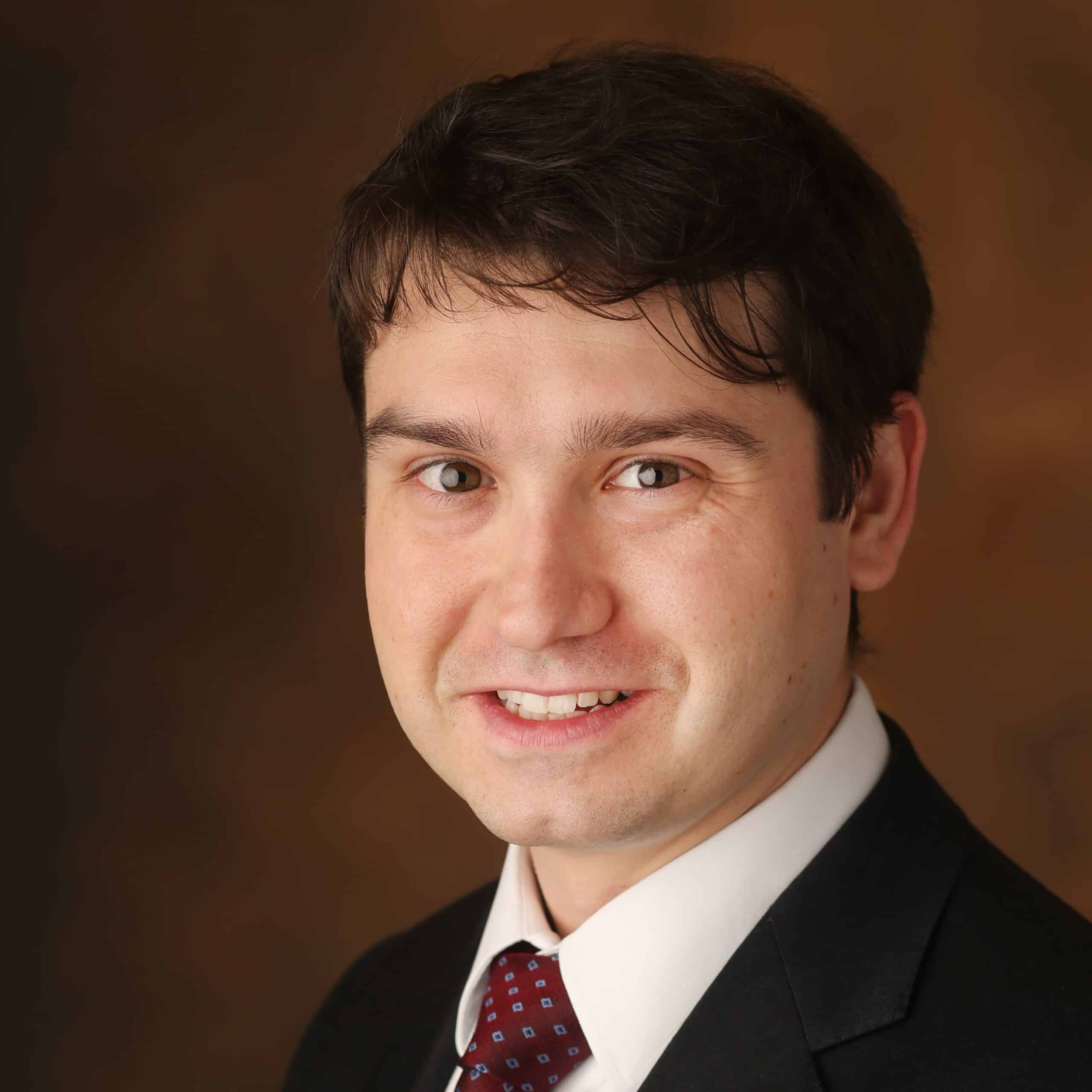
Tyson Chatagnier, University of Houston
PROFESSOR – Conflict Management
Tyson Chatagnier is an associate professor of political science in the College of Liberal Arts and Social Sciences at the University of Houston. Dr. Chatagnier earned his B.A. in political science and history from Texas A&M University and his Ph.D. in political science from the University of Rochester. After finishing his Ph.D., Dr. Chatagnier worked as a postdoctoral researcher at the Research Center on International Politics and Conflict Resolution at the Bruno Kessler Foundation in Trento, Italy, and taught courses at the Johns Hopkins School of Advanced International Studies, Europe in Bologna. He then spent a year at Vanderbilt University as a postdoctoral scholar.
Dr. Chatagnier’s research interests include trade and conflict, civil war and terrorism, economic sanctions, and the role of military service on political attitudes. He has published dozens of papers in political science journals and edited volumes, and has co-authored a book on international terrorism. In the spring of 2022, he was a visiting Fulbright Scholar at the University of Bologna, where he taught a course on the use of big data for peace studies.
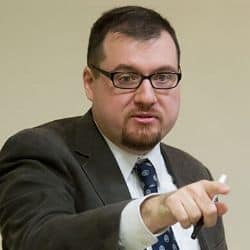
Adam Martin, Texas Tech University
PROFESSOR – POLITICAL ECONOMY
Adam Martin is Political Economy Research Fellow at the Free Market Institute and an associate professor of agricultural and applied economics in the College of Agricultural Sciences and Natural Resources at Texas Tech University. Dr. Martin earned his B.A. in economics and theology from the University of Dallas and his Ph.D. in economics from George Mason University. Prior to joining Texas Tech University, he was a lecturer in political economy and leader of the Rationality, Choice and Uncertainty Research Group at King’s College London.
Dr. Martin has also served as a post-doctoral fellow at the Development Research Institute at New York University and has been a visitor at the Center for the History of Political Economy at Duke University and the Social Ontology Group at Cambridge University.
Dr. Martin’s research interests include Austrian economics, economic methodology, economic development, and public choice. After receiving his Ph.D. in Economics from George Mason University in 2009, he was a post-doctoral fellow at the Development Research Institute at New York University. He has also been a visitor at the Center for the History of Political Economy at Duke and the Social Ontology Group at Cambridge.
Dr. Martin is a co-founder of the Carl Menger Undergraduate Essay Contest run by the Society for the Development of Austrian Economics. More information about him and about the contest can be found at his personal website, www.adamgmartin.com.
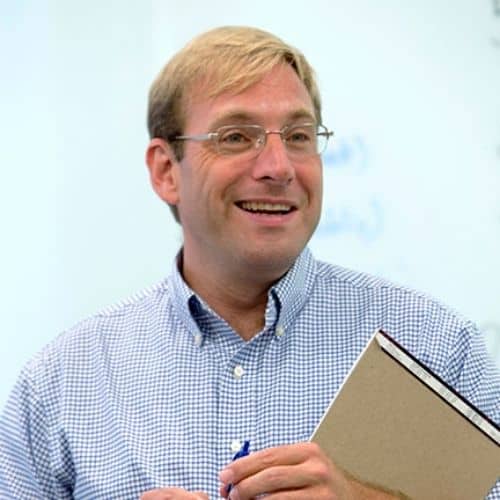
Nikolai Wenzel, Universidad de las Hespérides
PROFESSOR – Philosophy, Politics, & Economics
Nikolai Wenzel is a Professor of Economics at the online start-up Universidad de las Hespérides, where he directs the English-language MA program in economics. He is a Research Fellow of the Institut Economique Molinari (Paris France); from 2008 to 2019, he was a Research Fellow at the University of Paris Law School (Center for Law & Economics). Dr. Wenzel has held appointments as Associate Professor at Flagler College, Visiting Assistant Professor at Florida Gulf Coast University, and Wallace and Marion Reemelin Chair in Free-Market Economics (Assistant Professor) at Hillsdale College.
Dr. Wenzel has a Ph.D. in economics from George Mason University (where he was an H.B. Earhart fellow) and a BSFS cum laude in international affairs from the School of Foreign Service at Georgetown University. He is also a former Foreign Service Officer with the US State Department; for two years, he worked at the US Embassy in Mexico City where he was vice consul and special assistant to the US ambassador. He subsequently worked for various free-market think tanks while completing his doctoral coursework.
Dr. Wenzel is a member of the Mont Pelerin Society, the Society for the Development of Austrian Economics, and the Association of Private Enterprise Education. He sat for four years on the Executive Committee of the Association of Private Enterprise Education and is currently on the Board of Scholars of the Foundation for Economic Education. From 2014 to 2019, he taught political economy for the Asia Institute of Political Economy, co-sponsored by George Mason University and the Fund for American Studies at Hong Kong University.
Dr. Wenzel has published more than fifty scholarly articles and book chapters and is the co-author of a book on the libertarian-conservative debate (Stanford University Press, 2016). He is on the editorial board of Cosmos and Taxis and the Journal des Libertés. Since January 2020, he has been the editor of the Journal of Entrepreneurship and Public Policy.
When not writing on political economy, Dr. Wenzel dabbles in wine economics. He is a member of the Georgetown Chimes, Georgetown University’s male acapella singing group, and a novice bluegrass guitar picker and singer. He has traveled to 61 countries in the Americas, Asia, and Europe, and to 49 US states. He is fluent in English, French, and Spanish, with conversational German and Italian.
Political Economy
This course component will examine the structure and functions of a market economy in the context of such fundamental issues as free trade, the role of government in the economy, and private property rights. Students will not only discuss economic theory, but also analyze economic strategy in real world political situations.
Political Philosophy
This component of the course will study the principles of democracy and market economics, and apply those principles to the region. Lectures will contrast the features of democratic and authoritarian regimes and evaluate the economic, international and political benefits of democracy. Students also will discuss frameworks for developing and sustaining civil societies in the countries of the region.
Conflict Management
This course component will examine the role of the international community in reducing violent conflicts. Lectures and readings will analyze the politics of international conflict management, the roles played by states and international organizations, and examine relevant concepts offered by a variety of theories from the social sciences.
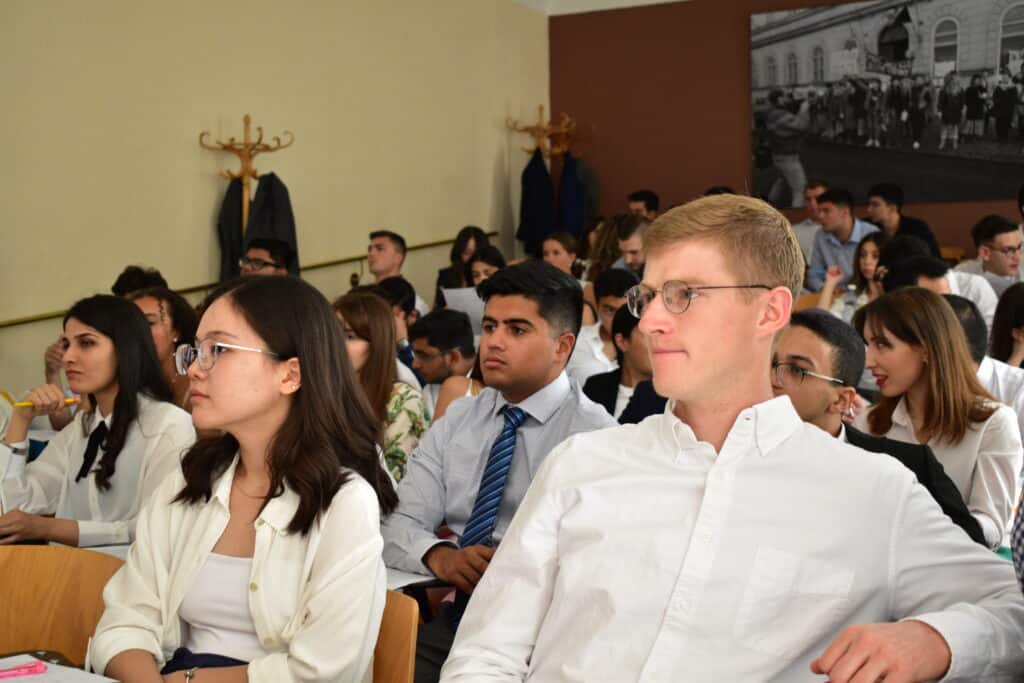
As a TFAS Prague participant, you will have many opportunities to see the sights and discover the history that give Prague it’s unique charm, including excursions to enjoy the landmarks, heritage, and stunning architecture of this European capital.
Walking Tour of Prague
On one of the first days of the program, students go on a walking tour of the beautiful, historical city, including sites such as the grounds of Prague Castle, the narrow streets of Staré Město (Old Town), the statue of St. John of Nepomuk on the Charles Bridge and the world-famous Prague Astronomical Clock in the Old Town Square.
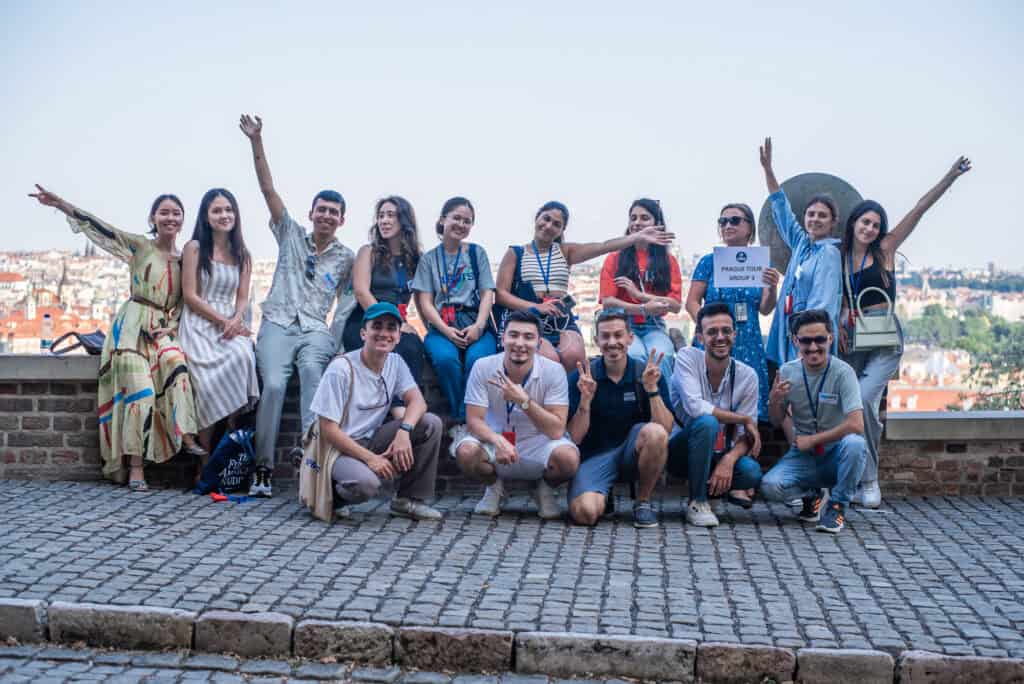
Cultural Presentations
During this annual event, students showcase their countries or cultures through traditional dance, costumes, songs, poetry, and cuisine. This special event is a unique opportunity for students to share their heritage and invite others to get a glimpse of their homelands. Each group is given a couple of minutes to prepare a brief, entertaining presentation for all to enjoy.
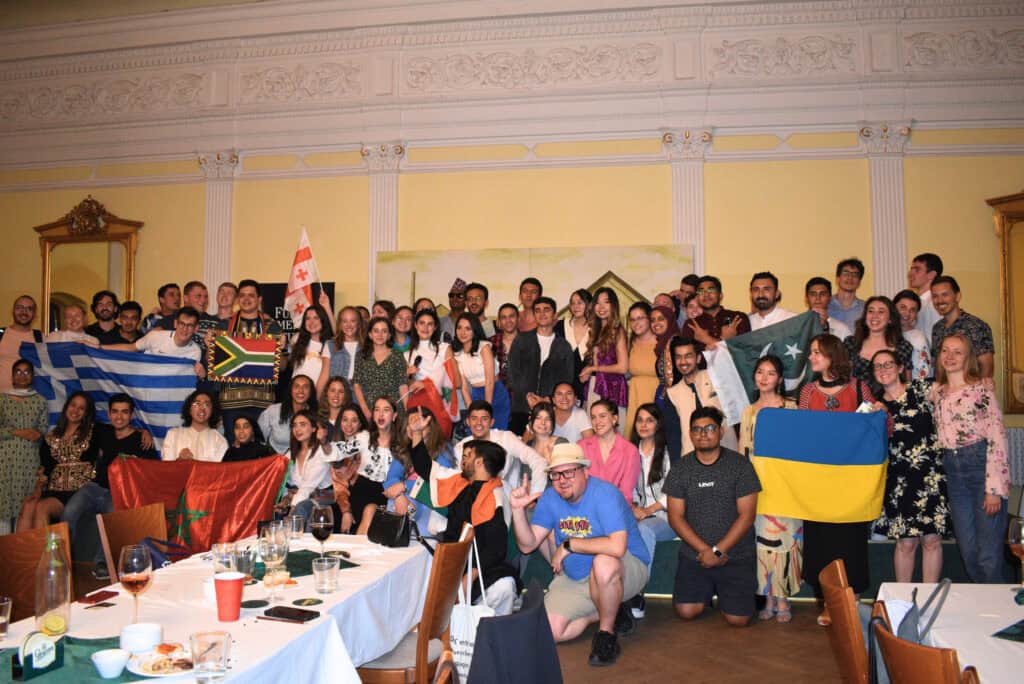
Bowling Night
A huge part of learning at TFAS happens through building relationships with peers from around the world. This learning takes place inside and outside the classroom, both informally and through organized activities, like TFAS bowling night at TFAS Prague!
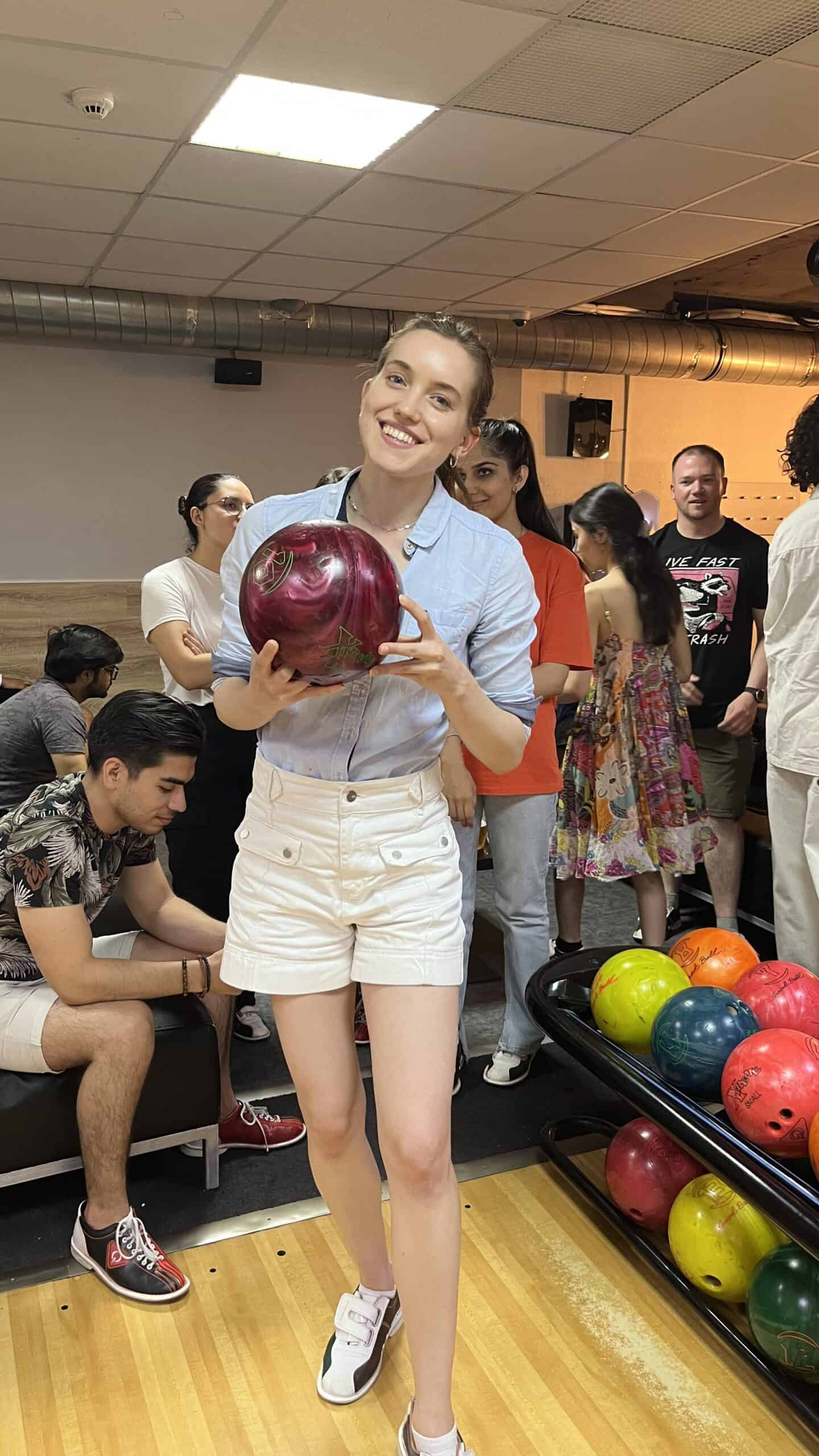
Alumni Panel
Every summer a group of TFAS Prague alumni returns to Prague sharing their academic and professional experiences with the current class. The alumni serve on a professional/career development panel and then spend the weekend during the program further cultivating networks between the alumni and current TFAS Prague class.
Accommodation + Meals
TFAS Prague participants will be housed in a dormitory located near downtown Prague. TFAS staff will assign same-gender roommates from different countries to promote cross-cultural exchange. There is wireless internet available in the lobby and internet cable ports available in each room. Students can do their laundry using washing machines available in the building.
Breakfast will be provided 7 days a week at the dorm during the program, while lunch will be provided at the Charles University cafeteria on weekdays. Every effort will be made to include alternatives for participants with special dietary requirements (kosher, halal, vegetarian, etc.) due to religion and/or lifestyle. Dinners and weekend lunches are open for students to explore the vibrant local cuisine at famous restaurants, cafés, and breweries.
Transportation
Students have convenient access to explore the city and go to class using public transportation, as the dorms and the university classroom are located near metro stops. The Prague Main Train Station and Main Bus Station are also easy to get to from the dorms using the Prague Metro system.
Neighborhood
The neighborhood surrounding the dorms is home to many of the technically oriented faculties of Charles University as well as a variety of shops, restaurants, coffee houses, and pubs.
By taking the metro a few short stops, you could find yourself walking through the grounds of Prague Castle, strolling along the streets of Malá Strana (Lesser Town), crossing the Vlatava River on the famous Charles Bridge, exploring Staré Město (Old Town), gazing at the Prague Astronomical Clock in the Old Town Square, or walking through Wenceslas Square, the site of historic protests during the Prague Spring of 1968 and the 1989 Velvet Revolution.
Please note this schedule gives an idea of the program’s general structure and is subject to change. Participants will receive the final schedule prior to the start of TFAS Prague.
| 2:00PM – 6:00PM | Registration |
| 7:00PM – 8:00PM | Group Dinner |
| 8:00PM – 9:00PM | Welcome Orientation I |
| 10:20AM – 11:00AM | Depart with Staff to Classroom |
| 11:00AM – 1:00PM | Orientation II |
| 2:30PM – 6:00PM | Group Activities |
| 9:20AM | Depart with Staff to Classroom |
| 10:00AM – 11:15AM | Political Philosophy Lecture 1 |
| 11:15AM – 11:30AM | Break |
| 11:30AM – 12:45PM | Political Economy Lecture 1 |
| 1:00PM – 2:15PM | Lunch |
| 2:45PM – 4:00PM | Political Philosophy Lecture 2 |
| 4:00PM – 4:15PM | Break |
| 4:15PM – 5:30PM | Conflict Management Lecture 1 |
| 5:30PM – 8:30PM | Walking Tour of Prague |
| 10:00AM – 11:15AM | Political Philosophy Lecture 3 |
| 11:15AM – 11:30AM | Break |
| 11:30AM – 12:45PM | Political Economy Lecture 2 |
| 1:00PM – 2:15PM | Lunch |
| 2:45PM – 4:00PM | Political Philosophy Lecture 4 |
| 4:00PM – 4:15PM | Break |
| 4:15PM – 5:30PM | Conflict Management Lecture 2 |
| 8:00PM – 11:30PM | Bowling |
| 10:00AM – 11:15AM | Political Philosophy Lecture 5 |
| 11:15AM – 11:30AM | Break |
| 11:30AM – 12:45PM | Political Economy Lecture 3 |
| 1:00PM – 2:15PM | Lunch |
| 2:45PM – 4:00PM | Political Economy Lecture 4 |
| 4:00PM – 4:15PM | Break |
| 4:15PM – 5:30PM | Conflict Management Lecture 3 |
| 10:00AM – 11:15AM | Political Philosophy Lecture Breakout |
| 11:15AM – 11:30AM | Break |
| 11:30AM – 12:45PM | Political Philosophy Lecture Breakout |
| 1:00PM – 2:15PM | Lunch |
| 2:45PM – 4:00PM | Political Economy Lecture 5 |
| 4:00PM – 4:15PM | Break |
| 4:15PM – 5:30PM | Conflict Management Lecture 4 |
| 8:00PM – 11:30PM | Bowling |
| 10:00AM – 11:15AM | Political Economy Lecture 6 |
| 11:15AM – 11:30AM | Break |
| 11:30AM – 12:45PM | Political Economy Lecture 7 |
| 1:00PM – 2:15PM | Lunch |
| 2:45PM – 4:00PM | Political Philosophy Lecture 6 |
| 4:00PM – 4:15PM | Break |
| 4:15PM – 5:30PM | Political Philosophy Lecture 7 |
Faculty Spotlight: Nikolai Wenzel
In this week’s Liberty and Leadership Podcast, Roger and Nikolai discuss how he has been able to combine his passion for travel with his joy of teaching economics in multiple countries, his time in Chile, the heartbreak he feels towards China’s crackdown on Hong Kong, the powerful attraction socialism holds on younger generations, and the how his students continue to inspire him.